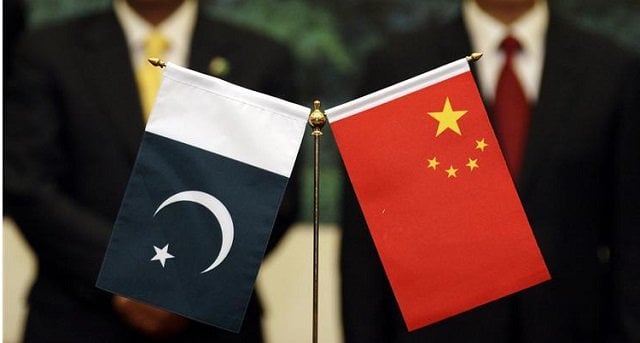Ebraheem Faisal
The historical ties between China and Pakistan date back to the 1950s, and the two nations have enjoyed a deep-rooted strategic partnership ever since. The recent visit of Pakistan’s Prime Minister Shehbaz Sharif to China has further underscored the enduring nature of this relationship. Amidst a backdrop of economic challenges and geopolitical shifts, this visit is a testament to the resilience and future-oriented vision of China-Pak relations.
Despite the hurdles, the commitment to upgrading the China-Pakistan Economic Corridor (CPEC) and enhancing cooperation in diverse sectors signals a promising trajectory for both countries.Premier Li Qiang’s discussions with Prime Minister Sharif emphasized the necessity of advancing trade and investment, and enhancing cooperation in security and defense, energy, space, science and technology, and education. Meetings with executives from Chinese companies in oil and gas, energy, ICT, and emerging technologies further highlighted the multifaceted nature of this strategic alliance.
Reinvigorating CPEC is crucial for Pakistan’s struggling economy, plagued by high inflation, trade deficits, and massive debt. These issues have been compounded by the Russia-Ukraine war, catastrophic floods, and political instability. Strengthened ties with China offer a pathway to economic stability and sustainability, countering Western pressures and political maneuvering.
Despite facing economic, security, and political challenges, China views CPEC as a strategically pivotal project that aligns with its long-term interests. Critical analysis reveals that, of the nine approved special economic zones, four are under construction, while five are yet to be launched. In transport infrastructure, six projects have been completed, five are under construction, and 13 are pending. Additionally, about a dozen coal-fired power plants and several motorways and mass transit projects have been completed, with more road projects and railway lines planned for CPEC Phase-II.
The strategic importance of Gwadar and other mega projects under CPEC Phase-II is further underscored by geopolitical developments, such as tensions in the South China Sea and India’s Chabahar Port agreement. These projects facilitate Chinese companies’ access to Middle Eastern and African markets, counterbalancing India’s influence and strengthening China’s ties with Pakistan.
Prime Minister Sharif’s visit to China is expected to bolster bilateral relations across various sectors, including economy, investment, joint ventures, industrialization, and infrastructure development. The present government has resumed work on CPEC projects with new vigor and commitment. As per consensus reached between the leadership of both countries, five new corridors have been identified for CPEC Phase-II, including growth corridor, livelihood corridor, innovation corridor, green energy corridor, and open and inclusive regional development corridor.

In the second phase, the government is focusing on promoting industrial cooperation with China through business-to-business linkages. The Pakistan-China Business Conference, organized in Shenzhen during the prime minister’s visit, was attended by more than 350 entrepreneurs from both countries, signaling a strong commitment to fostering economic ties.
Agriculture is another key area of cooperation, with Pakistan seeking to benefit from China’s experience in modern agriculture and the use of science and technology in this sector. The government plans to send agricultural scientists to China for training and to adopt modern techniques to enhance agricultural productivity in Pakistan.
Science and technology cooperation between the two countries is set to be further enhanced, while efforts are being made to modernize Pakistan’s 150-year-old railways system, which was damaged during recent floods. The ML-1 project is expected to be initiated as part of this modernization drive.
Work on green energy projects, such as the 2000 MW hydel power projects in Kohala and Azad Pattan, is expected to commence this year. Moreover, Huawei, China’s leading high-tech company, has formed a strategic partnership with Pakistan to help implement the digitalization process in the country.
In conclusion, the visit of Prime Minister Shahbaz Sharif to China has reaffirmed the strong strategic partnership between the two nations. Despite the challenges posed by economic difficulties, geopolitical shifts, and natural disasters, both countries remain committed to deepening their cooperation across various sectors. The resumption of work on CPEC projects, the identification of new corridors for Phase-II, and the focus on industrial cooperation, agriculture, science and technology, and infrastructure development all point towards a promising future for Sino-Pak relations. As the two nations continue to navigate the complexities of the modern world, their enduring partnership serves as a beacon of hope and opportunity in the face of adversity.
Related Post:
- Pak-China relations reach new height: FM Bilawal Bhutto
- Pak-China relations unique, time-tested and resilient: Dr Fazal ur Rehman
- CPEC phase-II to unlock major opportunities for Pakistan, says Ahsan Iqbal

















